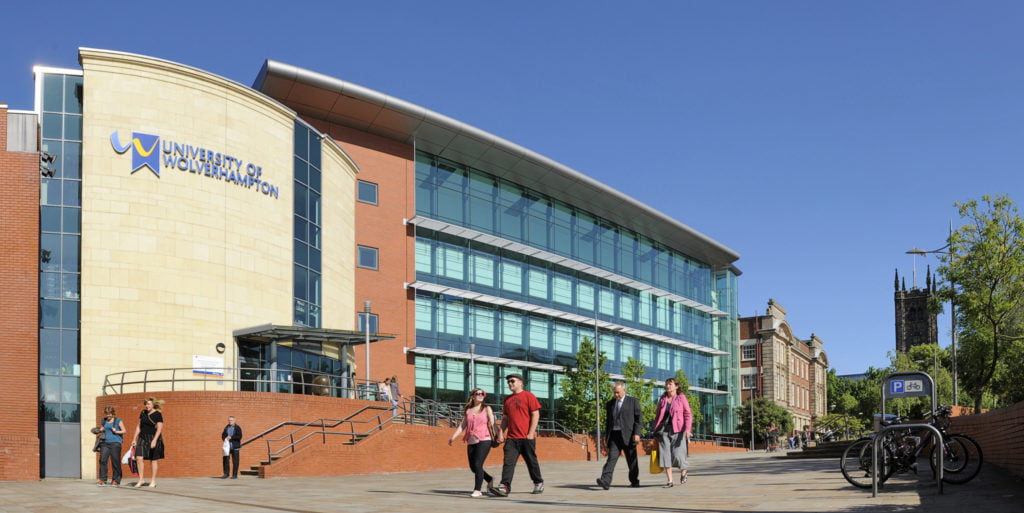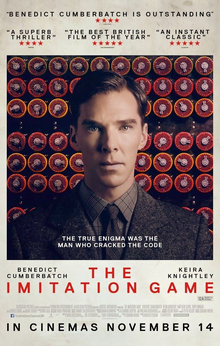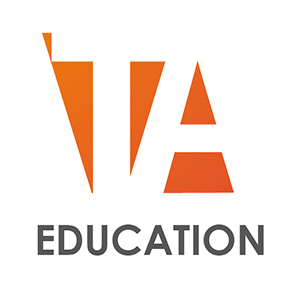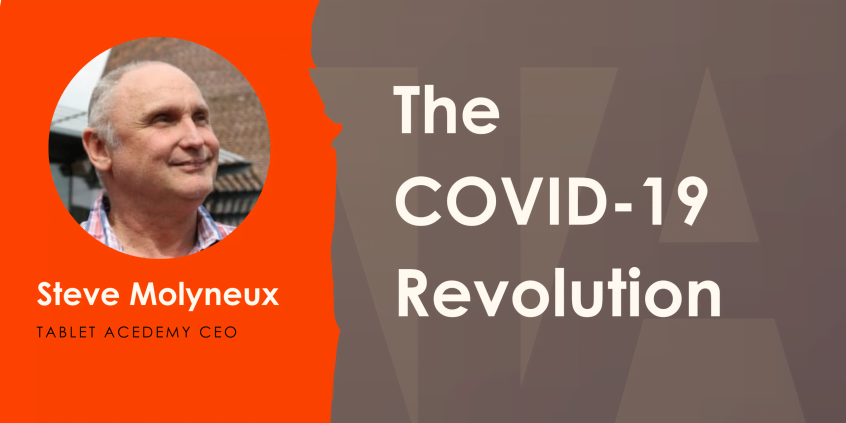In the first part of this article, I focussed on the significant impact the coronavirus pandemic had on Tablet Academy as an education support provider. In this part, I would like to cover what I believe could be the long-term impact of the pandemic on education and education systems in general.
It is clear to me, and no doubt to many others, that the policies that governments around the world put in place to curb the growth of the pandemic, and in particular the closure of educational institutions, alongside the technology-based solutions that schools had to deploy to ensure as little disruption as possible in young people’s learning, jettisoned education truly into the 21st century.
Schools and teachers have worked tirelessly in transitioning their teaching to an online environment using various education tools. Still, the present situation gives them no time to reflect deeply on how to develop or modify their teaching strategies and practices accordingly. It has undoubtedly been one of the reasons for the grown in requests for Tablet Academy’s consultancy services. During the closure of schools, the use of remote learning has been vital in bridging the gap with students, not in school. Particularly with those who require support with their engagement. It is also clear that many schools will benefit from continuing to use the skills and teaching and learning methods learnt by both teacher and student for homework and extension tasks to ensure students use these systems as a matter of course, thereby also further developing their digital skills.
The promises that education technology companies have made over the past 25 years in terms of online learning have finally begun to bear fruit. However, the rapid move to remote teaching and learning not only demonstrated the power of technology to combat situations such as ‘lockdown’ but also how woefully teachers are equipped to use the technology to its fullest. Those institutions who recognised early that a move to the cloud not only provided savings on institutional costs and the ability for anywhere anytime access to data and services, but that they had to invest in the training of all their staff in how to best to make use of these exponentially developing systems.
In developing such new operational strategies for their institution, it also became abundantly clear to many that it was not just a simple matter of upskilling teachers, but of winning over hearts and minds to this change. After all, teachers have heard all the broken promises of technology before and as such, are very sceptical about change. In the words of a teacher from one Tablet Academy client “Here we go, another I.T. initiative doomed to failure. As if we don’t have enough to do.”
Winning over the hearts and minds of teachers scarred by the continued dabbling of policymakers in introducing technology-based systems into education is a herculean challenge.
It reminded me of a time back in 1994 at the University of Wolverhampton, where I developed a system to use the internet to deliver small university teaching modules from various departments and for small businesses. This helped those who did not have the time to invest in travelling through heavy midlands commuter traffic to attend face to face courses. I was looking for sample lecturers willing to publish their content online and use online forums and chat to support these new remote learners.

Of course, these were the very early days of asynchronous learning using technology, and change was not always seen as for the good. During one discussion with colleagues, for example, I was told, “Steve, this is all well and good but if I place all my content online, my students will have access to it before the lecture and will therefore be far more prepared. If we publish all our content in advance of lectures, are we making ourselves redundant?”. The question is, of course, foolish as the invention and deployment of the textbook within education did nothing but expand the need for teachers.
Of course, this fear of technology replacing educators has always been used as an excuse by many for not adopting it, and it is not just 21st-century technology I am talking about. The same was true of the move from the Ink Pen to the Ballpoint pen, with teachers saying it would be the death of good handwriting.
Of course, this fear of technology replacing educators has always been used as an excuse by many for not adopting it, and it is not just 21st-century technology I am talking about. The same was true of the move from the Ink Pen to the Ballpoint pen, with teachers saying it would be the death of good handwriting.
Everywhere we look, the education system is in the midst of an accelerated digital transition and the way schools operate, teachers teach, and students learn, will never be the same.

In today’s coronavirus crisis, teachers everywhere are testing different forms of remote conference systems, such as Google Meet, Skype, Teams, Zoom etc. They are also looking through the vast array of online solutions that provide data gathering systems such as Padlet, Kahoot etc. in an attempt to find a solution, which could assist them in the remote assessment of their students.

No matter how much training in the use of technology Tablet Academy and its fellow training companies can provide, schools and individual teachers need to find the time to re-establish what key pedagogical and didactical strategies they want to keep in going forward. This will help them redefine what resources are required to develop and sustain a new hybrid form of face-to-face and remote teaching and learning environment for their students.
The well-known comment from George Couros that “Technology will never replace great teachers, but in the hands of great teachers, it’s transformational.” has held true for centuries, and in none truer than today. But what when advances reach a level where it is impossible to distinguish between teacher and technology. I am, of course, referring to the impact of Artificial Intelligence (A.I.) on education.
Whilst to many this may seem a long time off, let’s not forget that pandemics such as the Coronavirus, and other crises such as war, natural disasters etc., breeds a form of necessity that propels technological advancements to the fore. Afterall “Necessity is the mother of invention”.
Earlier this month I was reading several research papers edited by two very good friends of mine; Dr George Saltsman of Lamar University with whom I work as visiting Professor in Education Innovation, and BiJay Dhungana of the International Centre of Excellence for Innovative Learning in Utrecht, who also happens to be the Managing Director of Tablet Academy (Benelux).
Given that many ways the papers reflect my own thoughts on the subject, with the kind permission of the editors, I would like to paraphrase part of the works here, setting the scene for a wider discussion.
In his famous article “Computing Machinery and Intelligence” (1950), Cambridge mathematician Alan Turing describes a hypothetical game where he poses the question: “Can machines think?” In this game, the player needs to recognise the sex of two debaters only by asking questions and receiving answers without being able to see either of them. Turing then poses a new, unexpected question: “What would happen if a machine took the part of one of the two debaters in this game? When playing the game this way, would the player guess wrongly as often as when playing the game involving a man and a woman?”
The name of Turing’s original game was “The Imitation Game”, also the title of popular biopic film “The Imitation Game” starring the brilliant Benedict Cumberbatch. As educators watching this film, we may pose the question: “Could machines replace teachers?” or, more specifically, “Could A.I. replace teachers?”
This raises an issue directly related to Turing’s concerns: what role will A.I. and technologies in general potentially play in teaching and learning processes? A.I. could be seen equally as supporting teacher’s work or possibly replacing them.

To some extent, this is already happening subliminally to a degree. Our students are already using their smartphones every day to learn something; in an informal way, of course, but they are learning to walk on paths determined by different bits of intelligence, be they natural (teachers, YouTubers, scholars, anyone who creates whatever kind of online materials) or artificial (applications, software programs, search engines, etc.).
The education relationship between human beings and today’s modern technology is not related to repetitive robotic actions, as dramatised by the immortal Charlie Chaplin in “Modern Times”. But rather on creating something new.
Technology is evolving so quickly that our education systems, and the curriculum required to survive and compete in the modern world, must be overhauled. Even now, Tablet Academy has been working with Microsoft and Intel on bringing A.I. Curriculum to schools.
The introduction of robotics into manufacturing decimated not only a massive workforce but local economies. This decimation forced many counties such as the U.K. to move from a manufacturing economy to a services economy. We are very close to the time when, through Artificial Intelligence, technology will play the Imitation Game with us without us knowing human from machine.
The coronavirus pandemic has demonstrated that we can rise to any challenge and use technology to support the learning journeys of our young people. Now I believe we all, industry, government and educators, should rise to the challenge of providing an education system, content, support, and delivery mechanism that is truly for the 21st century and beyond.
Reference: Innovation in Teacher Education, (2020) Parmigiani, Van Ginkel, Saltsman, Dhungana. https://ijet.itd.cnr.it/article/view/1187
By Steve Molyneux, Tablet Academy CEO

